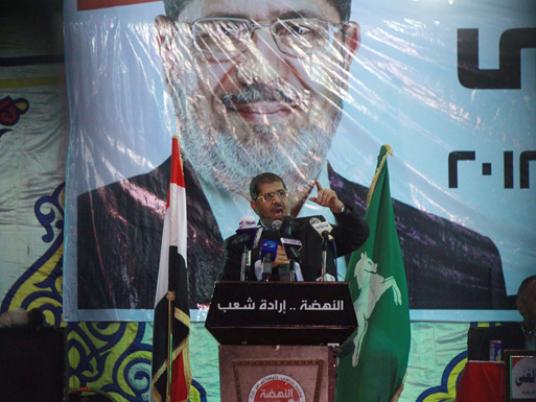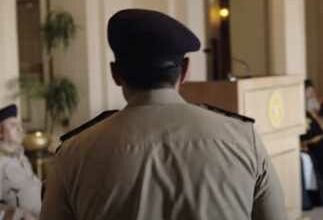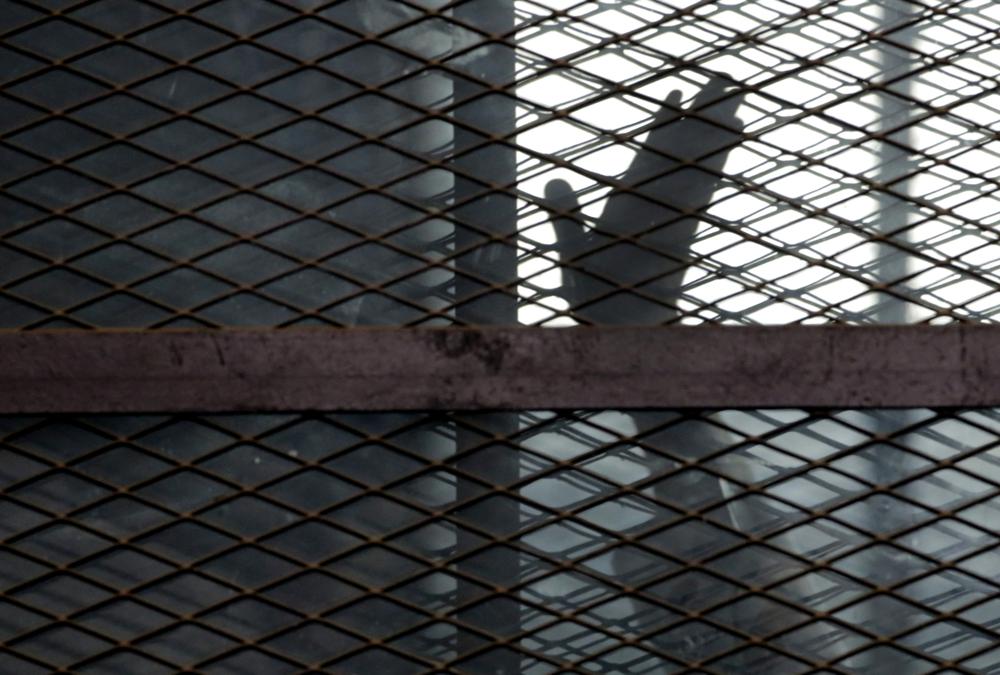
Muslim Brotherhood Deputy Supreme Guide Khairat al-Shater and Salafi preacher Hazem Salah Abu Ismail, who were both excluded from the presidential race last month, were referred to the Public Prosecutor on charges of defaming the Presidential Elections Commission, an official source with the commission said. The commission has also decided to refer three candidates to the prosecutor on charges of violating the campaign silence period, which ended on 1 May.
The source explained that the commission will also refer Abu Ismail’s falsified declaration concerning his mother’s US citizenship to the Public Prosecution.
The elections commission excluded Abu Ismail from the presidential race after receiving US documents and reports confirming that his mother held US citizenship, in violation of the Presidential Elections Law.
Shater was excluded under a law that bans pardoned prisoners from exercising their political rights for six years after being pardoned as a supplementary and consequential punishment.
Meanwhile, the Presidential Elections Commission decided on Wednesday night to refer Abdel Moneim Abouel Fotouh, Mohamed Morsy and Amr Moussa to the Public Prosecutor for campaigning illegally at universities.
The campaign office of Mohamed Morsy, the Freedom and Justice Party’s presidential candidate, criticized the elections commission for referring Morsy to the public prosecutor for violating the campaigning rules after he participated in a seminar at Mansoura University on 22 April.
In a statement release Thursday, Abdel Moneim Abdel Maqsoud, the Morsy campaign legal coordinator, said that Morsy met with the students at Mansoura University as part of the university’s cultural activities after receiving an invitation and as part of the student association’s quest to spread political and scientific awareness among students. He went on to say that according to Article 332 of student bylaws, “The Student Association retains the right to organize and invite speakers from outside the faculty to seminars, lectures, conferences or exhibitions.”
Abdel Maqsoud said the campaign silence policy prevented over 2 million university students from communicating with candidates for the country’s most important position in order to select the most suitable one. He asked, “How can the university be isolated from the country’s most important event after a popular revolution in which the students played a key role and in which dozens of them were martyred?”
He noted that referring the three candidates for allegedly holding rallies at Egyptian universities, despite the presence of violations by other candidates and their supporters who were not referred to the prosecutor, “suggests a form of selectivity in the presentation of names, which affects some [candidates] and distorts their public images…although other candidates in committed more serious violation.”
“We welcome the application of the law, but without exception or discrimination, as the recent period has witnessed major violations by some candidates that no one paid any attention to, and we are in the process of collecting and submitting them to the elections commission to take the necessary action,” Abdel Maqsoud added.
Abdel Maqsoud called on the elections commission to treat all candidates equally and to ensure neutrality and objectivity in its decision-making in order to preserve the integrity of the electoral process.
Edited translation from Al-Masry Al-Youm




